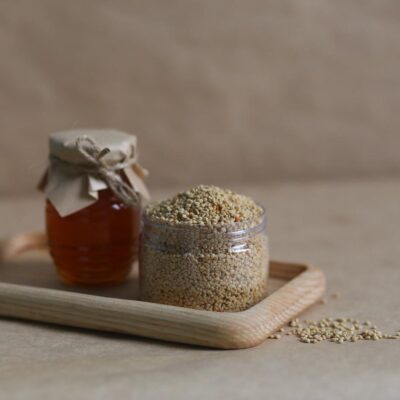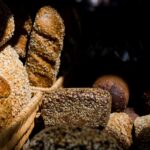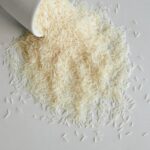Yes, dogs can safely consume quinoa. In fact, the grain is usually used as an ingredient in high-quality kibble since it has great nutritional value. However, there is a minor concern about the chemical saponin found in quinoa. Saponin can irritate the mouth and digestive tract, but its presence in quinoa is negligible.

Safe: This food is generally considered safe by the veterinary community. Dogs can eat this food sometimes or in small amounts but contains little to no nutritional value.
| Food Safety | Quinoa is safe for consumption when prepared properly. Washed and cooked plain quinoa is safe for dogs. However, quinoa prepared for humans should not be given to dogs. |
|---|---|
| Nutritional Value | Quinoa is an excellent alternative to other starches that dogs eat, such as corn, soy, or wheat. It is a great complex carbohydrate that can make dogs feel fuller. It also has vitamins B,and E, magnesium, potassium, amino acids, and calcium. |
| Potential Risks | Quinoa does contain traces of saponin. Therefore, if you do not properly rinse quinoa, there are chances that the saponin might harm your dog. Symptoms of saponin poisoning include vomiting, lethargy, diarrhea, and lack of appetite. |
How Much Quinoa is Good for Dogs?
If you have never fed your dog quinoa, it is wise to introduce it gradually. This is also important because some dogs might not respond well to quinoa and exhibit symptoms, such as intestinal discomfort, bloating, or vomiting. Dogs have digestive sensitive systems, therefore, it’s best to be cautious. If your dog enjoys eating quinoa, you could start by mixing a tablespoon of quinoa with kibble and gradually increase the portion. Dogs can safely eat up to a quarter cup of quinoa per day.
What Happens if Your Dog Eats Too Much Quinoa?
Since quinoa is generally safe for dogs, eating too much cooked and plain quinoa can result in mostly intestinal issues that may resolve. However, if your dogs have eaten too much of quinoa meant for human consumption, it may have toxic elements, such as garlic powder. In this scenario, contact your local veterinarian immediately.
If you suspect your dog has saponin poisoning from eating too much unwashed, raw quinoa, be on the lookout for symptoms such as vomiting, lethargy, and lack of appetite. If your dog exhibits any such symptoms, seek immediate medical assistance.
How to Safely Prepare Quinoa for Dogs
The most important step in preparing quinoa for a dog’s safe consumption is washing it. Soak the quinoa for a few hours and then rinse to remove any traces of saponin that may irritate the dog’s digestive tract. Next, cook the quinoa to make it easy to digest.
Feeding raw quinoa to your dog is asking for digestive issues and discomfort. Make sure not to add any additional flavoring to it since those can be toxic for dogs.
Frequently Asked Questions
-
No, quinoa prepared for humans may have additional elements, such as spices, that can be toxic to dogs. Cook plain quinoa separately for your canine friend.
-
White rice can spike up a dog’s blood sugar. Therefore, it can be fattening for dogs and cause other health issues. On the other hand, quinoa is healthier and an excellent complex carbohydrate. Therefore, some might argue that quinoa is better than rice for dogs.







